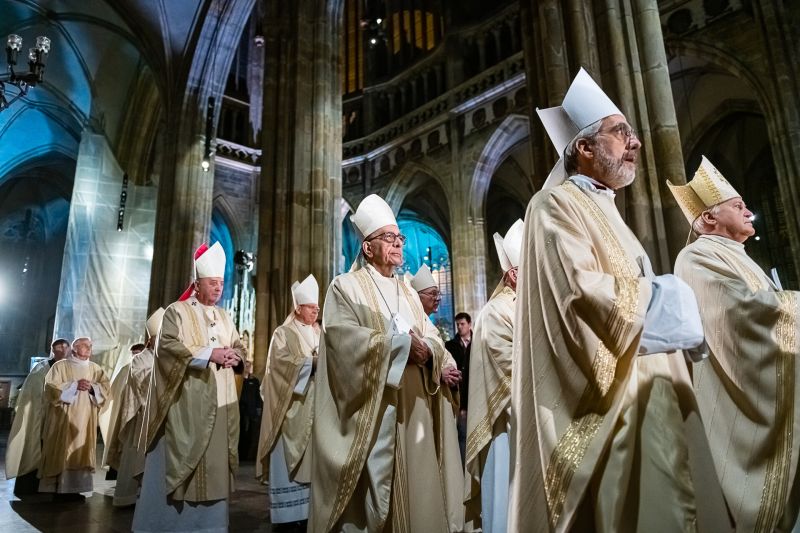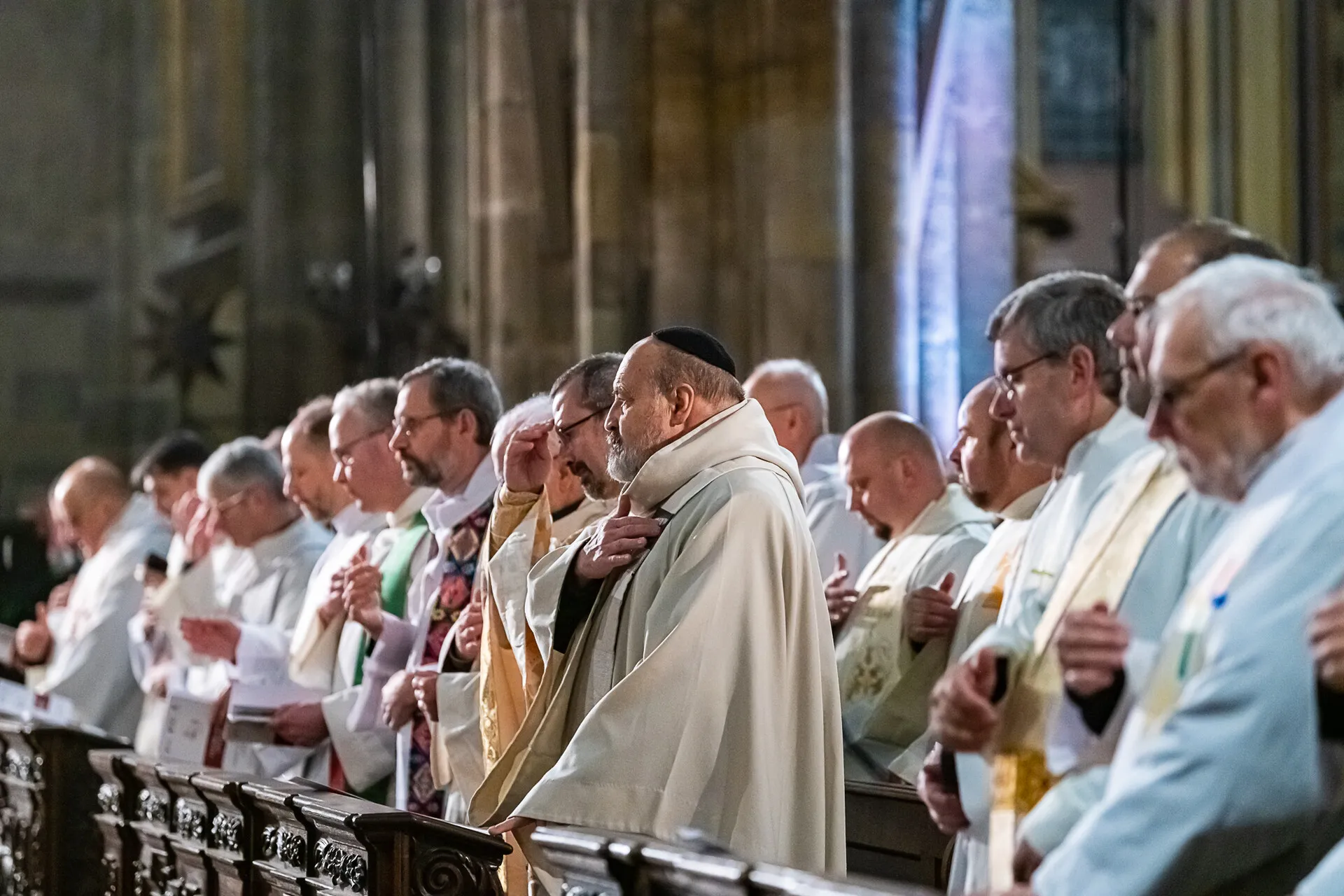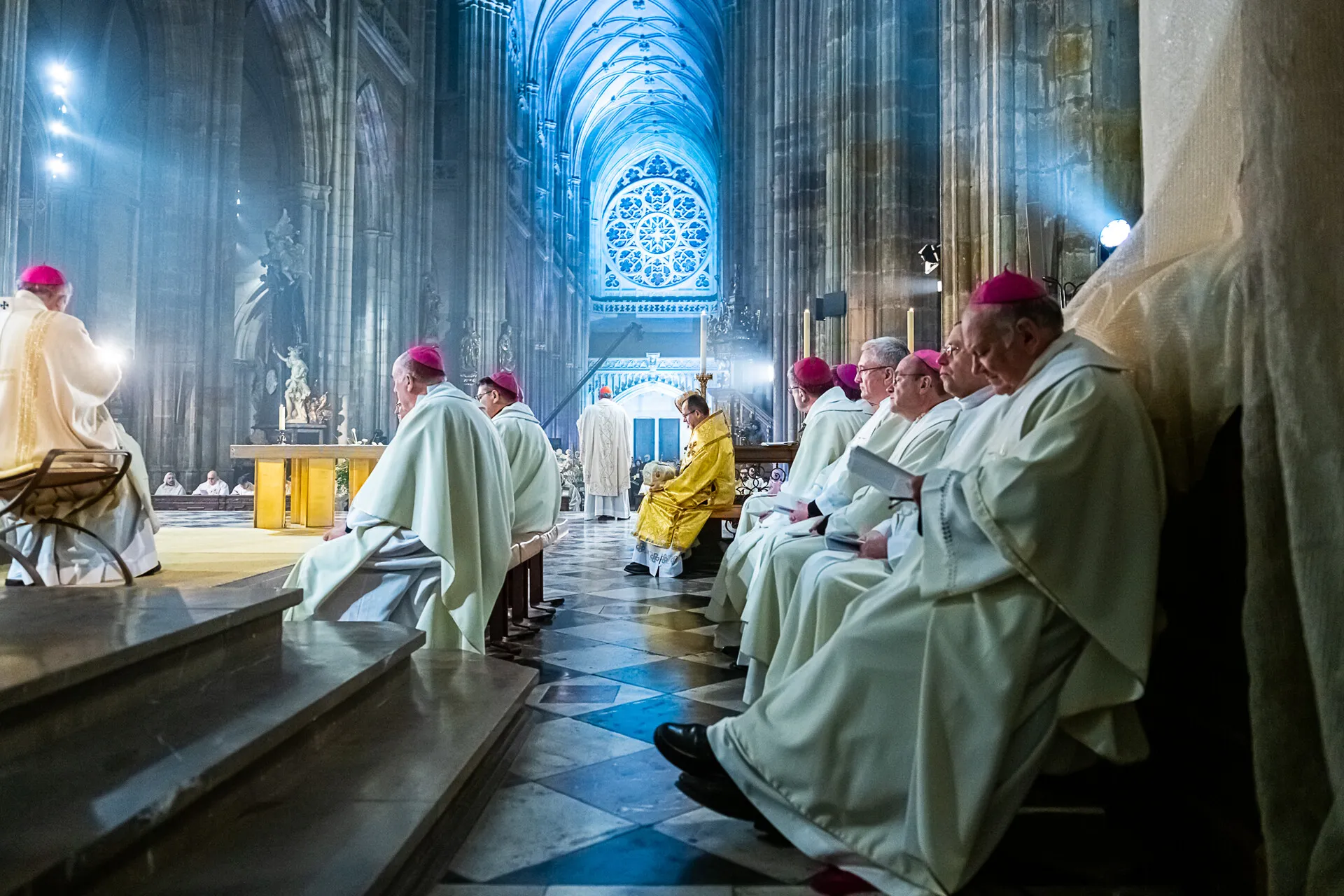Cardinal Grech at European assembly: ‘The synod is not there to destroy Catholic identity’

 Four cardinals, 45 bishops, and 80 priests concelebrated Mass Feb. 8, 2023, under the high vaulted ceiling of Prague’s St. Vitus Cathedral with about 500 people in attendance. The Mass marked the midway point of the European Continental Assembly meeting in Prague Feb. 5-12, 2023. / Credit: Lucie Horníková, Člověk a Víra
Four cardinals, 45 bishops, and 80 priests concelebrated Mass Feb. 8, 2023, under the high vaulted ceiling of Prague’s St. Vitus Cathedral with about 500 people in attendance. The Mass marked the midway point of the European Continental Assembly meeting in Prague Feb. 5-12, 2023. / Credit: Lucie Horníková, Člověk a Víra Prague, Czech Republic, Feb 9, 2023 / 09:15 am (CNA).
The chief organizer of the Catholic Church’s Synod on Synodality said Wednesday night that the global synod process is meant to uphold what makes the Catholic Church distinctive, not “to destroy Catholic identity.”
In a homily in Prague’s St. Vitus Cathedral on Feb. 9, Cardinal Mario Grech noted that some have wrongly understood the synod as “a battle of the conservatives against the liberals.”
The secretary general for the Synod of Bishops added that others have misunderstood the synod as a process to change the Church and to “blur the distinction between what is within the Catholic tradition and what is outside.”

Addressing these two “equally problematic” ways of understanding the Synod on Synodality, Grech said that the synod is not a process to “raze distinctions.”
“The synod is not there to destroy distinctions. The synod is not there to destroy Catholic identity,” he said.
“Rather, it is there to uphold distinctions, to understand the Gospel and what makes the Catholic Church truly one, holy, catholic, and apostolic.”

Grech offered these reflections midway through the European Continental Assembly meeting in Prague Feb. 5-12, where some European delegations have asked for a clearer definition of “synodality.”
“We need to try and define our vision of the Church, which during this process means perhaps a clearer definition of ‘synodality’ in the broader ecclesiological and theological sphere,” a representative of one of the English-speaking discussion groups told the assembly on Feb. 7.
The European assembly is split into two parts. In the first part Feb. 5-9, laypeople and clerics — including 65 women and 46 bishops — together represented their countries in livestreamed discussions of what priorities and themes should be taken up in the Synod of Bishops meeting at the Vatican this fall.
On Wednesday night, four cardinals, 45 bishops, and 80 priests concelebrated the Mass under the high vaulted ceiling of the 14th-century Gothic cathedral with about 500 people in attendance.
Located within the Prague Castle complex, the Metropolitan Cathedral of Saints Vitus, Wenceslaus and Adalbert contains the tombs of Holy Roman emperors and Bohemian kings, in addition to the tomb of St. Wenceslaus, a 10th-century martyr who inspired the Christmas carol “Good King Wenceslas.”

In his homily, Grech used the word “prepositions” 30 times to explain that “what is internal cannot be understood if not in relation to the external, and the external cannot be understood if not in relation to the internal.”
“I believe that our synod is and should be a synod of prepositions. A prepositional synod — not necessarily a propositional synod — but definitely a prepositional synod,” Grech said.
The cardinal underlined that “every day we have to ask what makes us distinct as a Catholic Church.”
“It is in this way that I understand and look, with hope, at the Synod on Synodality. May our endeavor not become an exercise in exclusive distinction, between those who are in and those who are out. In other words, a distinction without relation, which ultimately results in no distinction,” he said.
“May our God, who is totally different yet totally in communion, guide his Church to become distinct, yet in relation.”






